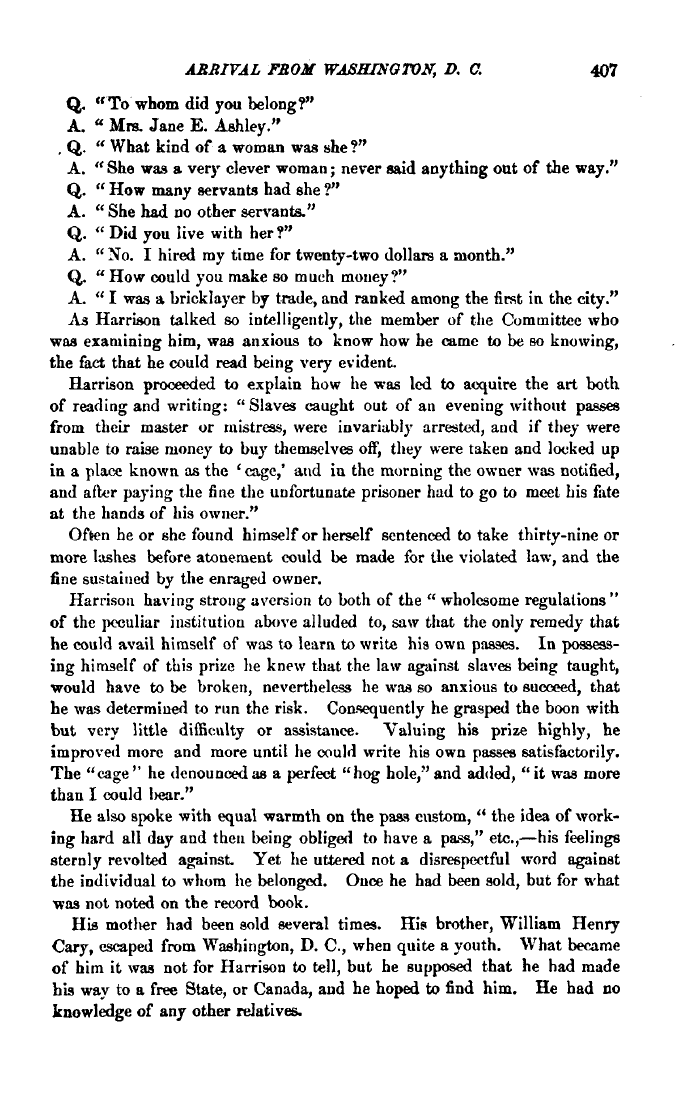 |
||||
 |
||||
| ARRIVAL FROM WASHINGTON, D. C. 407 Q. "To whom did you belong?" A. « Mre. Jane E. Aehley." . Q. " What kind of a woman was she?" A. " She was a very clever woman; never said anything out of the way." Q. " How many servants had she ?" A. " She had no other servants." Q. " Did you live with her?" A. "No. I hired ray time for twenty-two dollars a month." Q. " How could you make so much money?" A. " I was a bricklayer by trade, and ranked among the first in the city." As Harriaon talked so intelligently, the member of the Committee who was examining him, was anxious to know how he came to be BO knowing, the fact that he could read being very evident. Harrison proceeded to explain how he was led to acquire the art both of reading and writing: " Slaves caught out of an evening without passes from their master or mistress, were invariably arrested, and if they were unable to raise money to buy themselves off, they were taken and locked up in a place known, as the ' cage,' and iu the morning the owner was notified, and after paying the fine the unfortunate prisoner had to go to meet bis fate at the hands of his owner." Often he or she found himself or herself sentenced to take thirty-nine or more lashes before atonement could be made for the violated law, and the fine sustained by the enraged owner. Harrison having strong aversion to both of the " wholesome regulations " of the peculiar institution above alluded to, saw that the only remedy that he could avail himself of was to learn to write his own passes. In possessing himself of this prize he knew that the law against slaves being taught, would have to be broken, nevertheless he was so anxious to succeed, that he was determined to run the risk. Consequently he grasped the boon with but very little difficulty or assistance. Valuing his prize highly, he improved more and more until he oould write his own passes satisfactorily. The "cage " he denounced as a perfect "hog hole," and added, " it was more than I could Ixjar." He also spoke with equal warmth on the pass custom, " the idea of working hard all day and then being obliged to have a pass," etc.,—his feelings sternly revolted against Yet he uttered not a disrespectful word against the individual to whom he belonged. Ouce he had been sold, but for what was not noted on the record book. His motl»er had been sold several times. His brother, William Henry Cary, escaped from Washington, D. C., when quite a youth. What became of him it was not for Harrison to tell, but he supposed that he had made bis way to a free State, or Canada, and he hoped to find him. He had no knowledge of any other relatives. |